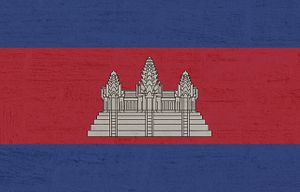The new Cambodian Law on Governing the Country in a State of Emergency aimed at addressing the COVID-19 pandemic sharply contrasts with some earlier actions of Prime Minister Hun Sen, such as allowing a U.S. cruise ship to dock in Sihanoukville in February after it had been turned away from several other East Asian ports due to the fear of contagion. While the state of emergency will effectively mitigate some of the consequences of the health crisis, it also deals a blow to the country’s already weakened civil society and to the opportunities that digital tools offer. The new restrictions threaten to last indefinitely unless the right checks are put in place.
The new law was passed by the lower house — which consists of members of the ruling Cambodian People’s Party only — on April 10 on the pretext of national security. Measures that regulate citizens’ physical movements might loosen relatively soon once the virus is under control. However, and more disturbingly, new regulations on the free flow of information are already counterproductive at present and might remain after the state of emergency is lifted. Under Article 5 of the law, measures on citizens’ freedom of movement can be imposed, something that has already been seen both in democracies and authoritarian regimes. But the state of emergency also contemplates unlimited surveillance of telecommunications and the control of media and social media.
In a recent article, Victor (Lin) Pu accurately notes the importance of the free flow of independent information in Taiwan to help combat the spread of the virus. Digital tools allow public services and civil society as a whole to share information with each other (in other words, they aggregate data), and they have also enabled fact-checking processes to identify sources of misinformation and disinformation. But Cambodia’s approach resembles that of China: exploiting the pandemic to reduce necessary freedoms while increasingly inducing fear among its people with new measures to regulate the flow of free and independent information. The crackdown has already led to several arrests of former opposition members and even a 14-year-old girl who expressed her fear on social media about coronavirus being spread in her school.
A strong digital infrastructure offers countless potential benefits to fight COVID-19. Even if Cambodia lacks the infrastructure of Taiwan, digital means and social networking sites can — within their own context — help make a difference. They can help ensure access to independent media, enhance coordination at the grassroots level, offer transparency and accountability, and increase awareness. Human Rights Watch claims that all citizens have the right to have access to “accurate and up-to-date information about the virus, access to services, notice of service disruptions, and other aspects of the response to the outbreak.” But the new restrictions only seem to be serving the interests of the government — to silence its critics with indiscriminate arrests and the spread of fear that ultimately translates into self-censorship among citizens — instead of allowing stakeholders to aggregate data to fight this health, social, and economic crisis. Looking at some of the political events that took place in the last decade, it is unlikely that any new restriction on the free flow of information will be fully removed after the pandemic. Consequently, civil society is not only deprived of an opportunity to gain agency during a time of crisis; it is also condemned to remain in the background in the future.
Marc Pinol is a doctoral researcher and Assistant Teacher in Politics at the University of Bristol, UK. Follow him on Twitter: @marcpinol99

































